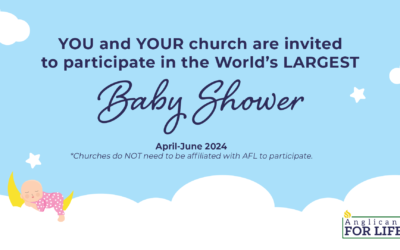This is the third part of a series of three blogs looking at caregiving. The first focuses on the biblical basis of caregiving and the second on the physical, emotional, and spiritual burdens of caregivers.
A study in 2008 reviewed the reasons given by the surviving family members of a number of patients in Oregon on why the patients requested assisted suicide. Family  members ranked 28 possible reasons based on what was of less or more importance to the patient. According to the data, the patients’ top concerns were desires to control the circumstances of their deaths, fears of poor quality of life in the future, and losses of independence, dignity, and sense of self. The saddest reasons, which ranked at about mid-way in importance levels, were concerns about being a burden to others and about having others take care of them. It’s interesting to note that distress about immediate pain ranked low on the list of reasons.1
members ranked 28 possible reasons based on what was of less or more importance to the patient. According to the data, the patients’ top concerns were desires to control the circumstances of their deaths, fears of poor quality of life in the future, and losses of independence, dignity, and sense of self. The saddest reasons, which ranked at about mid-way in importance levels, were concerns about being a burden to others and about having others take care of them. It’s interesting to note that distress about immediate pain ranked low on the list of reasons.1
What is most notable about this study is the focus of the reasons—patients chose to die rather than be a “burden” or lose their dignity and independence. But instead of taking this data and using it to help patients, to ease their fears and encourage them accept assistance, we have allowed these concerns to embed themselves in our culture, which now express themselves in the growing acceptance of the euthanasia and assisted suicide.
As society increasingly embraces the Right to Die, where does that leave aging people and caregivers? How can we have caregivers in the future if the lives of those they will potentially care for aren’t valued? This is where the Church must play an important role. As nations turn to euthanasia and assisted suicide to “fix” their suffering, the Church must be prepared to address aging, dying, and caregiving, in order to create a culture that cares
Aging Happens and It’s Really Okay
When we attend a 40th birthday party, many of us will give “over-the-hill” cards and bring black balloons. Every magazine and commercial promises products or diets or lifestyles to make you look or feel younger. We have an obsession with youth, and unfortunately that has somehow made us think that being old is, by contrast, to be avoided. As in so many other things, God’s Word is at odds with society’s view. “Gray hair is a crown of splendor; it is attained in the way of righteousness.” (Proverbs 16:31) The Scriptures portrays aging not as a decline but as a victory for a life well-lived! Priests and pastors need to be able to counsel parishioners who fear aging and those who are serving as caregivers, so that they can see getting older not as a sad end to youth but the beginning of a new stage of life that God has planned for them.
Additionally, the best way to raise up a new generation of caregivers is to create opportunities for children and young people to build relationships with older people. Encourage older people to serve in nursery or as Sunday School teachers. Pair up an older adult with a young person to pray for one another. The more familiar young children are with aging people, the more comfortable they will be in serving them in the future.
Suffering Is Not Avoidable
Volumes and volumes have been written about suffering and the Christian life. I will not attempt to encapsulate the whole of suffering in this brief blog post. But I will say that we as a culture increasingly fear suffering and pain, whether that is due to medical advances prolonging our lives or from the quick-fix mentality of swallowing a pill to solve all our problems. No matter the reason, we seem ill prepared to face the natural physical and mental decline at the end of life. As difficult as it is to do so, the Church must talk about suffering. Suffering isn’t the antithesis to living—it is living.
In our fallen world, as much as we do to avoid it, we are going to suffer. That is a guarantee. And God will use that suffering to bring us closer to Him, to increase our dependence on Him, and to grow us in our faith. By teaching the value of suffering, as difficult as that is for us to bear, those who are aging can be more prepared to see purpose in their ailing health and failing minds, and caregivers can be prepared to comfort and encourage those they are caring for.
Your Life Is Not Yours
Autonomy is the new Western value, which explains why a desire to control their own lives and independence were the prevalent reasons the studied patients in Oregon chose assisted suicide. After all, it’s their life, why shouldn’t they choose how it ends? The problem being, it isn’t their life. It never was. It’s God’s. He has ordained all our days and knows all that He has planned for us. The Church needs to encourage caregivers and those they care for to find their purpose for living not in this world but the next. Every day spent on this earth is dedicated to building His Kingdom, whether that is done living on our own or being helped out of a hospital bed! Our lives have value because God has created us, not because of anything we are able to do. Knowing that life is more than preserving independence can help aging people accept the generous love of caregivers.
John Stott wrote, “We all are designed to be a burden to others. You are designed to be a burden to me, and I am designed to be a burden to you… ‘Carry each other’s burdens and in this way you will fulfill the law of Christ.’ (Galatians 6:2)” No one likes to feel like a burden—but if the Church were able to build a culture that cares, a culture that values the remaining days of the elderly, a culture that seeks to encourage caregivers—we can be more prepared to bear one another in love and compassion. And a culture that values death is no match for a culture that values what God cherishes.
To help churches, caregivers, and care-needers learn how to address and understand end of life issues, we encourage you to look into our Embrace the Journey adult education curriculum.
1 Ganzini, Linda, Elizabeth R. Goy, and Steven K. Dobscha. “Why Oregon Patients Request Assisted Death: Family Members’ Views.” Journal of General Internal Medicine 23.2 (2008): 154–157. PMC. Web. 19 Apr. 2017.
By Robin Ferguson, AFL Administrator



